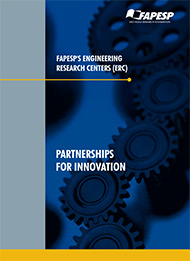New center will combine research on mental health with digital interventions

29 de março de 2023
By José Tadeu Arantes | Agência FAPESP – The National Center for Research and Innovation in Mental Health (CISM) was officially launched on March 15 at an event held at the Psychiatry Institute of Hospital das Clínicas (HC), a hospital complex run by the University of São Paulo’s Medical School (FM-USP) in São Paulo city, Brazil.
CISM is a joint initiative of FM-USP’s Department of Psychiatry and FAPESP. It will combine research activities investigating the factors that originate and precipitate mental disorders with the development of digital interventions to foster mental health in an innovative and scalable manner.
It will also study ways to implement interventions shown to be effective in the SUS (Sistema Único de Saúde, Brazil’s national health service) so as to ensure that the mental health knowledge created by science translates into real benefits for the general public.
Researchers from FM-USP, as well as the medical schools of the Federal University of São Paulo (EPM-UNIFESP) and the Federal University of Rio Grande do Sul (FCM-UFRGS), the most productive in Latin America in the field of mental health, are affiliated with CISM, which already has an impressive number of partnerships with institutions abroad, including Harvard University and Yale University in the United States.
Besides substantial investment by FAPESP, seed funding has also been supplied by Banco Industrial do Brasil (BIB). FAPESP classifies CISM as one of its several Engineering Research Centers and Applied Research Centers (ERCs/ARCs).
In a presentation delivered during the event, Eurípedes Constantino Miguel Filho, Vice Chair of FM-USP’s Department of Psychiatry and CISM’s principal investigator, explained that the center will conduct research in three main areas. “One is population neuroscience, where we will conduct a cohort survey [following a group of volunteers] to identify the key risk factors for mental disorders. Another is digital interventions, where we will create an environment to foster innovative ways of investigating the public’s mental health needs, including the prototyping and development of applications designed to offer solutions, which will be thoroughly tested for clinical efficacy. The third area is implementation science, where we will implement evidence-based interventions via the SUS in two cities in São Paulo state, Jaguariúna and Indaiatuba. Our mission is to offer tested solutions that can be disseminated throughout Brazil and adopted as public policy,” he said.
International benchmark
CISM is expected to serve as a model not just for similar initiatives in other Brazilian states but also worldwide, especially in low- and middle-income countries.
Mental disorders affect about 30% of the population in metropolitan São Paulo, Miguel Filho noted. The estimate is from a study conducted more than ten years ago but still considered an international benchmark (read more at: agencia.fapesp.br/15329).
“Mental disorders stand out among medical conditions because they represent a heavy burden of disease for the general population owing to their frequency and early onset, as well as the incapacity and suffering they cause,” Miguel Filho said.
An almost always ignored aspect of mental disorders is that they tend to begin at an early age, frequently around the subject’s fourteenth or fifteenth birthday. At the same time, access to treatment is limited. A survey using a database for more than 60,000 Brazilians showed that only 20% of those with depression had received treatment of any kind, and a significant proportion of the most vulnerable was not assisted. These numbers highlight CISM’s importance to healthcare in Brazil.
The next speaker was Luis Augusto Rohde, Professor of Psychiatry at FCM-UFRGS. He discussed digital technology in mental healthcare, the second of CISM’s main research lines. He said the number of mental health applications available on the market has risen sharply, yet only 2% are based on scientific research. “Moreover, 90% of their users abandon them after about ten days,” he noted.
CISM plans to establish a “digital mental health hub”, he added, which will improve this situation by becoming a national center for incubating and accelerating innovative digital solutions in mental health. It will also establish an accreditation center for digital solutions in mental health in partnership with INOVA-HC, the innovation unit for FM-USP’s hospital complex.
Paulo Rossi Menezes, Professor of Preventive Medicine at the University of São Paulo’s Ribeirão Preto Medical School (FMRP-USP), spoke about the third research line. He said 50% of medical interventions with scientifically proven efficacy do not reach clinical practice, and the time required for implementation averages 20 years. In other words, it is not enough to produce high-quality knowledge – it is necessary to know how to put it into practice. Thus, implementation is itself a science.
Alongside Miguel Filho, Rohde and Menezes, another lead researcher at CISM is Jair de Jesus Mari, Professor of Psychiatry at EPM-UNIFESP.
The launch event was attended by the following senior officials: Vahan Agopyan, São Paulo State Secretary for Science, Technology and Innovation; Carlos Gilberto Carlotti Júnior, Rector of USP; Eloisa de Oliveira Bonfá, Director of FM-USP; Carlos Alberto Mansur, CEO of BIB; Marco Antonio Zago, President of FAPESP; and Luiz Eugênio Mello, Scientific Director of FAPESP.
Zago recalled that the original proposal for CSIM, which came with the grant from BIB, did not correspond exactly to the model for the ERC/ARC program, currently the largest business-academia cooperation program in Brazil, with investments totaling BRL 1.5 billion.
“Professor Luiz Eugênio Mello worked very hard, alongside Carlos Américo Pacheco, CEO of FAPESP, to format the center we’re launching today. That’s what I want to celebrate: the capacity of our different actors to obtain the results that matter to society,” Zago said.



